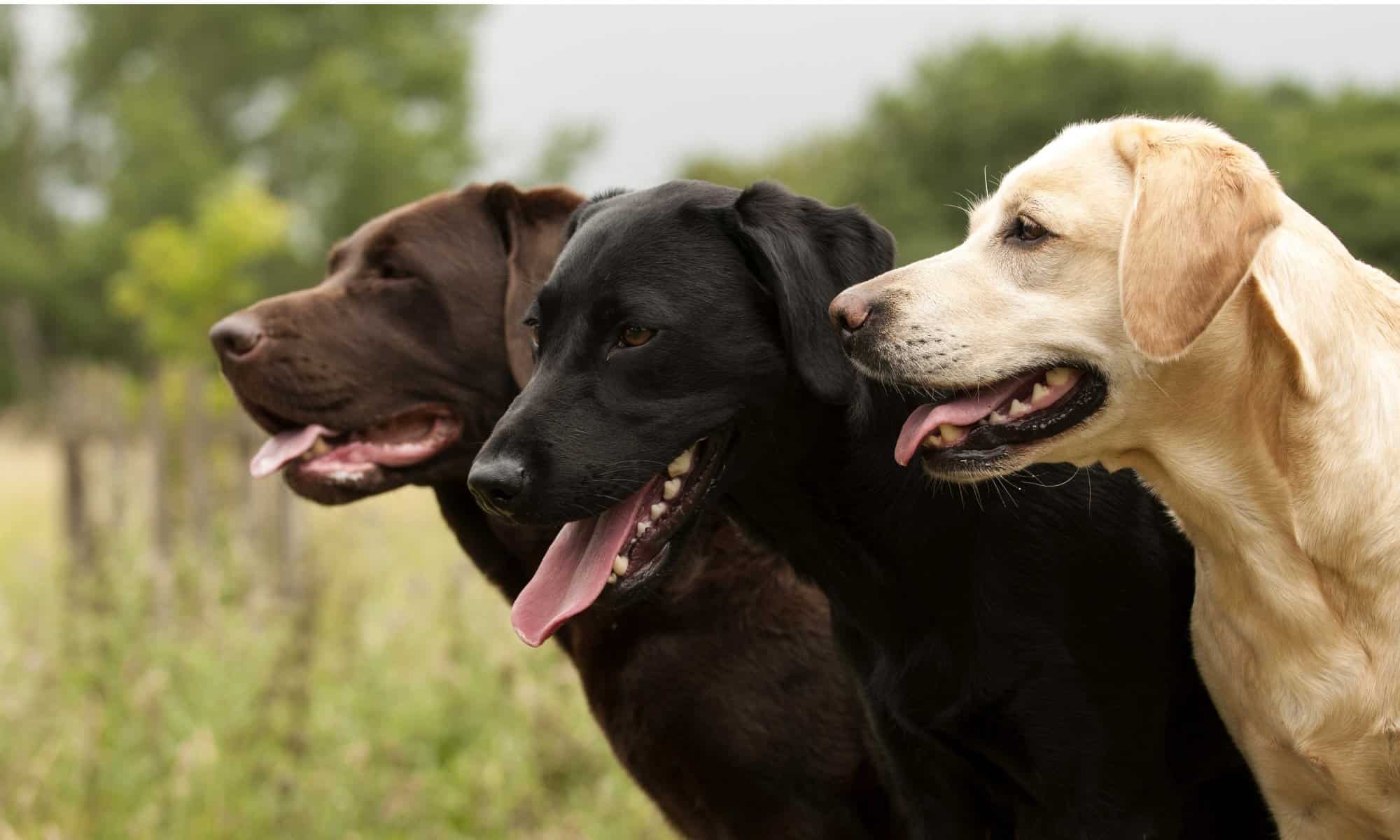WHAT IS A REPUTABLE BREEDER?
Compiled by Central California Labrador Retriever Club
INTRODUCTION
Once the decision is made to obtain a pure-bred dog, the challenging search for that puppy begins. These guidelines are meant to assist the reader in becoming an informed puppy shopper. The failure to become informed about the characteristics of the breed of dog one intends to purchase is the main reason disastrous selections are made, commonly resulting in abused, neglected or relinquished dogs which contribute to our canine overpopulation problem. An informed puppy shopper is aware of the common genetic problems the breed of interest has and is knowledgeable of the methods by which breeders reduce the incidence of those problems. An informed puppy shopper is also aware of the condition in which a puppy ready for purchase should be, in terms of health, disposition and socialization.
The best pure-bred puppies are usually purchased from a “reputable breeder”. The innocent ignorance of the dog purchasing public enables disreputable breeders to stay in the business. Finding a reputable breeder with puppies available is an accomplishment. Once a reputable source for a pure-bred dog is found, selection of the most appropriate individual puppy is greatly facilitated.

WHERE CAN PURE BRED DOGS BE FOUND?
Actually, a pure-bred dog can usually be obtained at a moment’s notice. The classified sections of big city newspapers commonly contain numerous advertisements for pure bred puppies, usually at a competitive price. Some pet shops offer pure bred puppies for sale, usually at relatively higher prices. Dog fancy magazines commonly contain permanent advertisements for kennels offering pure bred puppies in their classified section. The internet offers a multitude of opportunities to purchase pure bred puppies. Roadside signs steer unwary puppy shoppers to back yard litters. Puppies displayed at flea markets and parking lots play on the compassion of impulse buyers. Do not purchase a puppy through ANY of these sources.
Reputable breeders generally do not advertise in the newspaper and consider it unethical to sell puppies through retail outlets (pet shops). Reputable breeders generally do not do enough breeding (litters per year) to warrant a long-standing advertisement in a dog fancy magazine. Reputable breeders may post information about their kennel on the internet but would never sell a puppy through the internet without a personal interview with the consumer. Reputable breeders depend on “word of mouth” advertising, generally a network of referrals amongst themselves (“Sorry, I do not have any yellow Labrador retriever puppies available, but I can refer you to this reputable breeder….”) and from veterinary and dog fancy professionals who know them on a first person basis.
This is not to say that a puppy obtained from a newspaper advertisement, a quality pet store, a reliable kennel with advertising in a magazine, someone’s back yard, a flea market or a parking lot cannot be wonderful. The chances of obtaining a quality puppy are simply much, much higher if that puppy is obtained from a reputable breeder through appropriate networking. Additionally, purchasing directly from a breeder diminishes support for inhumane puppy mills.
WHAT IS A REPUTABLE BREEDER?
A reputable breeder is making a conscientious effort to produce the best quality puppies possible. This definition of quality means the puppies are in good health, have minimal genetic defects, good temperaments, and display the traits for which their breed is known and desired.
Most reputable breeders are not breeding dogs to sell puppies to the public. They are breeding dogs because it is their hobby. They spend time at dog events which are usually competitive, either against other dogs or their owners, or against a standard of performance. They breed dogs to produce winners or workers to compete with. Because dogs tend to have litters rather than single offspring, “extra” puppies are inevitably produced when breeders mate two dogs to produce what they hope will be a winner or a successful worker. Hence, puppies are available for the public. What makes a breeder reputable, despite this somewhat selfish basis for breeding dogs in the first place, is their compassion for the breed. Reputable breeders want to produce wonderful dogs, not only for their own use but for the public as well. Wonderful dogs have minimal flaws and contribute positively to people’s lives. Reputable breeders work hard to overcome the inevitable genetic flaws that occur in the pure-bred dog. Reputable breeders also do not want to produce excess puppies contributing to the canine overpopulation problem and would be devastated to learn one of their puppies ended up in a shelter or as a stray.
Disreputable breeders produce puppies in hopes of financial gain or personal glory. Some disreputable breeders are so consumed by the thrill of winning in the competitive venue that they have little concern for the excess puppies of problematic quality produced while pursuing that hobby. These are the puppies that tend to be found in the newspaper, at pet shops and in fancy magazine advertisements. Puppy “mills” are the most disreputable of breeders, as they are mass production oriented and will market their product through the easiest channel (pet shops, internet, magazines). “Back yard” breeders breed pets and are not involved in competitive dog fancy events. Backyard breeders can be either reputable or disreputable. Some back-yard breeders elect to breed their pet because of the perception that it is a wonderful representative of the breed and should be reproduced. They may or may not have done homework evaluating their pet’s genetic health and true (desirable) representation of the breed. They may or may not have selected an outstanding stud dog for their beloved pet bitch.
CHARACTERISTICS OF REPUTABLE BREEDERS:
- Knowledgeable in every facet of their breed (appearance, disposition, genetics, breed specific traits, history).
- Willing to give references (veterinarians, previous puppy buyers, other breeders).
- Shares records of health clearances on both sire and dam (minimally: normal hip and elbow radiographs taken > 2 years of age, current normal annual eye exam by an ophthalmologist, normal heart ultrasound by a cardiologist, unaffected certification of genetic testing for Exercise Induced Collapse (EIC), and the late-onset form of progressive retinal atrophy. Other genetic tests for the breed are also desirable, a complete list is available in our CCLRC breeders’ code of ethics.
- Only breeds to improve their line of dogs and refuses to breed a dog that should not be reproduced.
- Proves the quality of the dogs produced, via titles, certificates, and health clearances.
- Interviews prospective puppy buyers carefully.
- Will let you see/meet/interact with the Dam and littermates.
- Is more interested in the quality of the home the shopper offers than the sale price.
- Is willing to refuse to sell a puppy to a home that does not fit.
- Is always willing to take back a puppy/dog that does not work out with a purchaser.
- Is knowledgeable about puppy training, puppy medical problems, good local veterinarians and kennels.
- Knows the ancestry of their dogs. Provides accurate pedigrees (genealogies), appropriate registration papers and medical/genetic records on puppies.
- Follows up on puppy placements and is available for consultation after the purchase is complete. Even years later.
- Collects and keeps accurate health and temperament records about the long-term outcome of breedings.
- Supports rescue groups for the breed and takes responsibility for the canine overpopulation problem.
- Participates in the dog fancy somehow, as it is their hobby.
- Encourages or requires neutering of pets.
- Displays compassion to their dogs in terms of housing, husbandry, health care and socialization.
- Is financially able and willing to support their dog breeding hobby.
- Has firm knowledge about individual puppies in a litter and advises the best match for a puppy shopper rather than letting the shopper pick the most appealing puppy of the moment.
- Usually has more interested puppy buyers than puppies available, resulting in waiting lists, and the prices of puppies reflect their quality.
- Is ethical.
